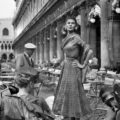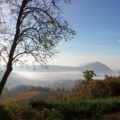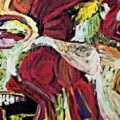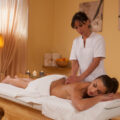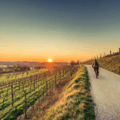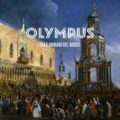“You treat a disease, you win, you lose. You treat a person, you’ll win, no matter what the outcome!”
Patch Adams
8th of September, the International Physiotherapy Day. Physiotherapy derives from the Greek Φυσιο (natural) and θεραπεία (therapy); so, it literally is a natural therapy, branch of the prevention medicine, treatment and rehabilitation of patients with musculoskeletal, neurological and visceral pathologies. The physiatrist is the doctor: after specific diagnosis, he coordinates the therapies which allow to improve the lifestyle with a technical-motor approach. The physiotherapist is his right-hand man, the operator, putting into practice of these rehabilitation, preventive and curative techniques.
Abano Terme arises as a perfect site for the physiotherapy as it combines the typical physiokinetherapeutic treatments to the antalgic and contracture-relieving action of the thermal water. This reduces rehabilitation times requiring less work as well thanks to the lightening of the body weight of the 90% with the immersion in the water. Also, the therapeutic mud of Euganeans Thermae is patented and unique in Europe for its properties and reliefs. The AbanoRitz Hotel, as other thermal structures, ha a specialized department and thermal treatments are part of the state-run health care.
The efficacy of the treatments and the magnificence of the places is already known in pre-Roman age, in which the local populations were fascinated by these steaming waters with sulphurous odors. The history starts exactly from the Montirone, few meters far from the Hotel.
At the AbanoRitz, under the supervision of our medical director, it is possible to have an ad hoc program for the rehabilitations in numerous degenerative, rheumatic, posttraumatic, postsurgical pathologies. Each one of our operators is highly trained and certified. Here we introduce you the doctor Antonello Fattore.
“Nothing else than the function can restore function, nothing else than the movement can restore the movement.”
Mennel
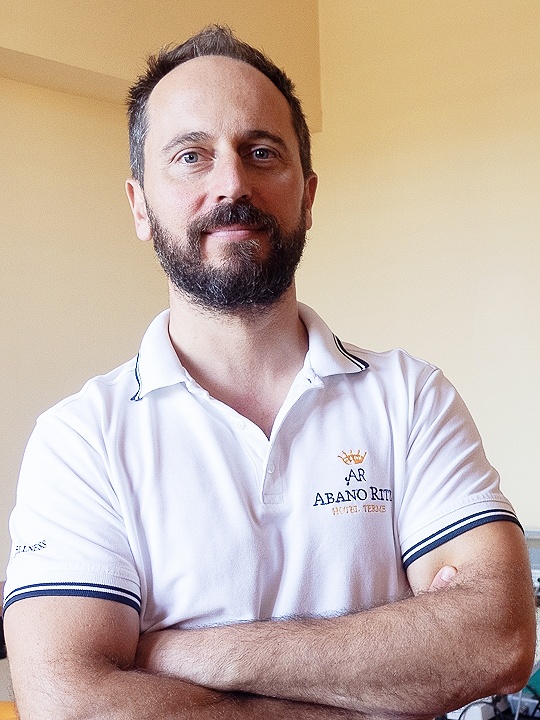
© Giulia Miotto
Coud you tell us something about you: job, education, training, …
After my graduation I started working in hospital-orthopedic by re-educating the function. Then I got in the Manual Therapy world and I trained in advanced OTM (Orthopaedic Manual Therapy) and then in Fascial Manipulation. In the last years I rediscovered the thermal water and its many potentialities: nowadays I integrate the Idrokinesitherapy at the “dry” work on the table.
What put you into the physiotherapy?
Since I was a child, I wanted to be a physiotherapist. I don’t know why, but the treatment of the person through movements and tissues manipulation always fascinated me. The physiotherapist as a modern curer? Maybe yes!!!
Which other goals would you like to reach?
I would like to delve into the preventive side of the rehabilitation, organizing group classes very specific for single more common problems. You could thus embrace many more users who start having “common” problems that, if they are not treated could get worse, bringing single people to enter in that escalation of diagnostic examinations, visits, physiotherapies, etc, not more so easy to solve.
In which ranges you can have better results and which are the most effective techniques?
Surely the field of musculoskeletal disorders is the one in which the manual therapy can be more incisive, since the first session; anyway, all the orthopedic and rheumatologic range can take a big benefit, but usually here is where there are already structured problems, so you may need more treatments.
What is the manual therapy?
The manual therapy is a specialistic branch of the physiotherapy for the treatment of the neuro-musculoskeletal pathologies. It is based on a clinic reasoning and it uses approaches of treatment highly specific that include manual practices and therapeutic exercises. The objective is to reestablish the optimal movement of the joints and of the musculature of the body damaged parts.
What is the better advice to give in order to preserve a psycho-physical well-being?
Do what you like, without excluding anything. The important thing is to know the “weaknesses” of your own body and to equip yourself to overcome them, with the movement and the nutrition.
And we thank Dr. Antonello Fattore for giving us a few minutes of his time. You can find him here at the AbanoRitz, together with other highly trained operators that we invite you to discover and know by clicking here.



